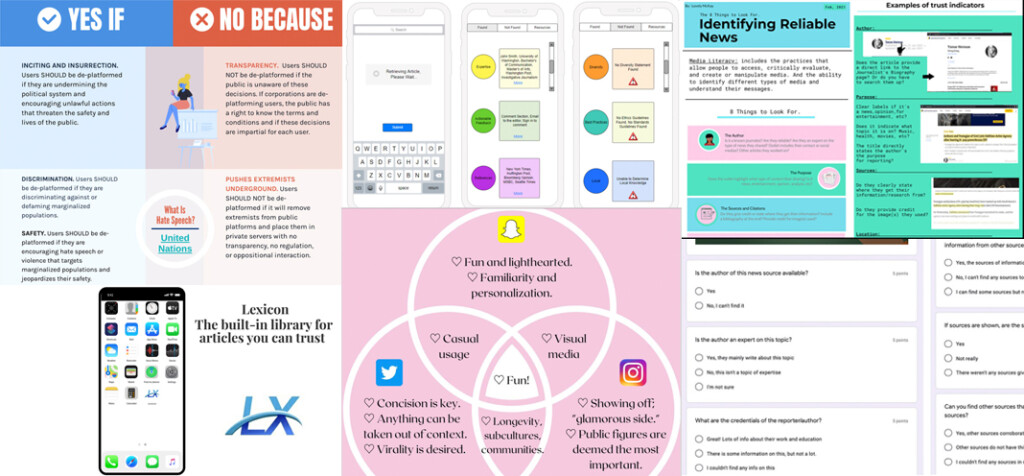Page 105 • (1,538 results in 0.043 seconds)
-

Audrey Borloz ’24, Fani del Toro ’24, Aidan Donnelly ’25, Grady Lemma ’25, and Angela Rodriguez Hinojosa ’24 spent the summer focused on synthesizing organic compounds called antenna ligands for lanthanide ions. When these molecules interact with specific ions like europium(III) or terbium(III), they exhibit…
patience, critical thinking, and problem-solving. I was glad to learn from Dr. Yakelis and be a part of his team!” "This research experience was like a bridge connecting my academic journey," explained del Toro. Fani del Toro ’24 | Chemistry major Preparing for the future “Doing summer research with Dr. Yakelis has played a vital role in shaping my post-graduation plans, particularly in pursuing a Ph.D. in organic chemistry,” said del Toro. “It helped me gain practical skills in creating new synthetic
-

TACOMA, WASH. (Feb. 28, 2020 ) — Cece Chan’s activism awakening came in high school. As a third-generation Asian young woman, she realized Seattle Public Schools’ majority-white institution and Eurocentric curriculum had damaged her own cultural understanding due to lack of representation within textbooks or…
. “It was the saddest thing, that same damaging and devaluing feeling,” Chan said. Film Reflections Chan’s passion for social justice has primarily focused on education and the experiences of people of color. As a high school student, she created a documentary, “For the Culture,” focused on the importance and need of ethnic studies. Using a Canon camera to shoot the documentary and a laptop to edit the film, Chan taught herself necessary skills. “I really enjoyed using film as a cool way to tell my
-

By Sarah Cornell-Maier ‘19. This Fall, Pacific Lutheran University is introducing a new history class that serves as a gateway to the Innovation Studies Program . Hist/Phil 248: Innovation, Ethics, and Society is a team-taught course that combines many different fields of study into one.…
for History and Philosophy students, and those interested in Innovation Studies. After sitting down with Professor Michael Halvorson, one of the instructors, I think that the new course will be a fascinating introduction to very tangible skills–with a few surprises. Two Classes in One Michael Halvorson, Director of Innovation Studies An important aspect of Hist/Phil 248 is that it is really two classes built into one. Students register for the History 248 section (led by Michael Halvorson) or the
-
Study away is an opportunity for students to pursue their academic interests in a different cultural context.
Center is here to support your student though the process before, during and after their program(s).Why Study Away?Why study away?Study away is an opportunity for students to pursue their academic interests in a different cultural context. As a result, students gain experiences and develop skills and competencies that could help launch their career post-graduation and give them an advantage in the job market. Trust your student – this is a chance for them to grow, navigate a new and unfamiliar
-

When Matthew Conover ’19 was a student at PLU, he recalls someone telling him there were two types of software engineers: the ones who chose to chase the money, and the ones who had no other choice. “I fall into the latter camp,” Conover said.…
-computer science courses I took at PLU. Physics, for instance, is an amazing way to learn problem solving. I find myself using many of the soft skills from the humanities courses as I am regularly trying to persuade people of my position’s correctness or trying to better communicate the intricacies of my solutions. While at PLU, you had the opportunity to study away. How was that experience? I spent the fall term of my fourth year at King’s College London. I also spent J-Term my second year in
-

Travis McDaneld ’23 is entering his fourth year at PLU as an economics major, minoring in data science. When he enrolled at PLU, he had every intention of majoring in business, although he admits to not having any idea about what he wanted to do…
discrimination because you haven’t been there very long. It’s a very healthy working environment. More practically, though, I get to use the skills I’ve built over my time in school in an atmosphere surrounded by finance, which is close to what I major in and love. That’s an amazing opportunity to get to do before I’m even out of college. How did your internship differ from the work you do in the classroom? Often in school, when you’re working with data, it’s very small data sets, but these are really large
-

In high school, Peyton Noreen ’23 loved participating in theatre productions. Noreen’s passion for the stage wasn’t something they were ready to give up on when they enrolled at Pacific Lutheran University. It’s why they chose to major in theatre and why they’re spending the…
far want to be there, and they want to do theatre, and they want to have fun and play and use their imaginations. It’s really fun to see. The other aspect of the internship is that I teach a different topic every week. So, in my first week, I taught imagination, teamwork, and collaboration skills to kindergarten through third graders. And then last week, I was teaching improv to fourth through sixth graders. Then this week, I’m working with 13 through 16-year-olds, just giving them a feast, a
-
Pacific Lutheran University offers graduate and post-baccalaureate certificate programs in advanced professional education within a context of the liberal arts tradition.
client projects within industry and capstone consulting research with a regional or national company, MSMA candidates develop knowledge, skills and experience attractive to employers. The M.S. is accredited by AACSB International—The Association to Advance Collegiate Schools of Business. Creative WritingThe Master of Fine Arts (M.F.A.) is a 36-month low-residency program in the fields of poetry, fiction and creative nonfiction intended for those wishing to develop and pursue careers as writers. M.F.A
-
A master's degree, in any major, from a regionally accredited institution with a cumulative GPA of 3.0 or higher For Ed.D.
cumulative GPA of 3.0 or higher Online application Application fee (non-refundable) Official transcripts from all colleges and universities attended Two letters of recommendation GRE or GMAT scores (Optional) Résumé Personal statement of professional goals and quantitative skills Official TOEFL or IELTS score report (for international applicants only) Fast Track Application is for students and alumni from the following schools: Pacific Lutheran University Any AACSB-accredited school Any Bachelor of
-

Originally published on the PLU Library blog . Reposted with permission. During J-Term 2021, students in Assistant Professor Kate Drazner Hoyt’s Media Literacy COMA 388 explored topics such as: the role that the press plays in sustaining democracies; the different forms of online misinformation and…
the acceptable communicative behaviors on these apps. They should also come to an understanding that these are all sources meant for forms of social interaction. As long as people approach social media with a basic understanding and critical thinking skills, social media will generate more educated and healthy online communities.Read full project briefLovely McKay: 8 Things to Look For: Identifying Reliable News Artist Statement: I created an infographic for people to consider while they’re
Do you have any feedback for us? If so, feel free to use our Feedback Form.


